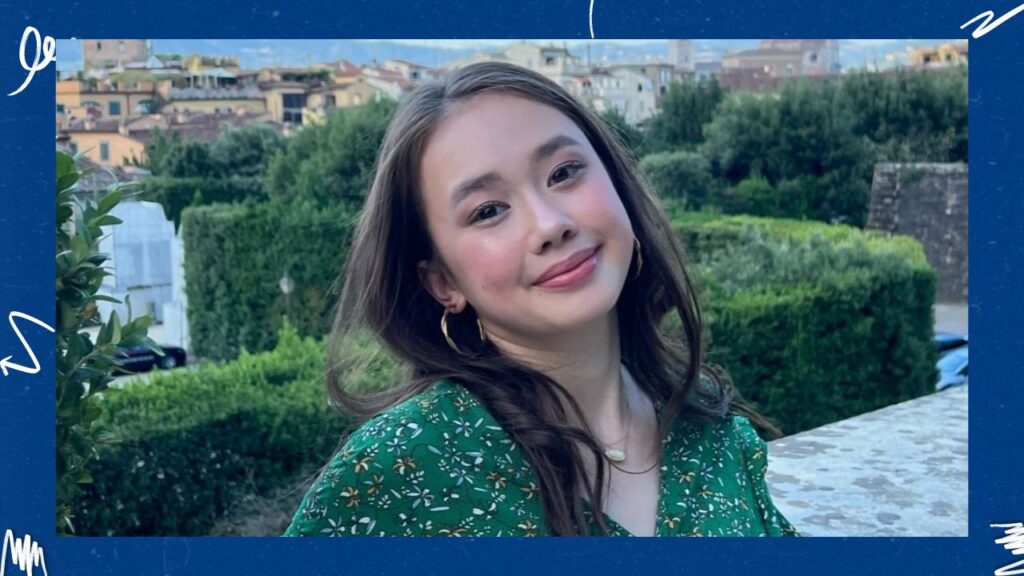How a hymn gave me peace after my grandfather’s passing
By Gabriella, age 18, Ambassador with Springtide Research Institute

Springtide Research Institute is a nonpartisan, nonprofit organization, that delivers accessible social-scientific research on young people ages 13-25. Springtide is paying particular attention to the changing landscapes of meaning, identity, and community when it comes to understanding emerging generations. One way they do this is through facilitating the Springtide Ambassadors Program which is open to teens and young adults throughout the U.S. Springtide Ambassadors help shape the research efforts and community engagement of Springtide. Through collaboration and reflection, Ambassadors actively contribute to national research projects and publications sharing their insights, perspectives, and experiences. 2024 Ambassadors were recently invited to submit a piece to Faith Counts that responded to the following prompt:
Discuss an interfaith experience you’ve encountered personally or observed in your community. Reflect on how this experience challenged or enriched your understanding of religious diversity, tolerance, and cooperation. Consider the impact of interfaith dialogue on promoting harmony and understanding among different religious traditions.
Below is an essay we’re thrilled to share from Springtide Ambassador, Gabriella, age 18:
Two summers ago, I spent eight weeks in Indonesia caring for my bedridden grandfather and memory-challenged grandmother. Not raised speaking Indonesian or traveling internationally, I had to navigate foreign customs, climates, food, language, and religion. I spent hours with three Muslim Indonesian caregivers, who hardly spoke English, while I hardly spoke Indonesian. Our valiant Google Translate efforts evoked many laughs but hardly any deep conversation, and alone would not have built a relationship.
MORE: Gen-Z voices experience their neighbor’s faith
Unable to communicate with my grandfather, I sang every Christian hymn I could find lyrics for. The kind caregivers listened to my singing at all hours. Instead of ignoring my Christian songs or signaling disapproval, they helped me find sheet music and sometimes sang with me. As I sang to God for my grandpa, they too sang for his sake. Just as they faithfully greeted me on their way to pray, they faithfully supported me during my worship sessions.
We bonded over my singing, and over time, we tried to discuss food, practice each other’s language, and exchange childhood songs. Even after I returned to the U.S., one of the caregivers would assist with my video calls so I could sing nightly to my grandfather. Though they had their own families, these caregivers treated mine like family. They honored my strong-willed grandmother and incapacitated grandfather as their elder relatives, holding their hands and laughing with them. They cooked my grandmother’s favorite foods, despite their own dietary beliefs. With patience and kindness, they made daily tasks exciting and bearable.
When I returned to Indonesia the following summer, after my grandfather had passed, they treated me as a returning part of their family. Though the Muslim and Christian worlds are usually depicted as mutually exclusive, these caregivers gave my Christian family, me, and my songs their attention and love.
Nothing is more beautiful than selfless love, love not based on contract, duty, or prior relationship. As we selflessly cared for my grandparents together, we bonded over sessions of song. Song fostered peace between us, essentially a language of peace. Arguments, debates, displays of evidence, or apologetic writings would not have appropriately communicated my faith, but the song proclaimed my faith’s hope, peace, and love.
Song speaks where writing may not be read, where speech may stutter, and where dialects may distance. It lives among soldiers and senior centers, prisons, and public rallies. Song empowers us. Song feeds faith, hope, and love. Through song, the human soul communicates to the divine, and Heaven, which I believe in, will overflow with song. Therefore, where writings, speeches, dialects, militaries, healthcare, justice systems, and politics fail to connect us, a song may produce peace.



